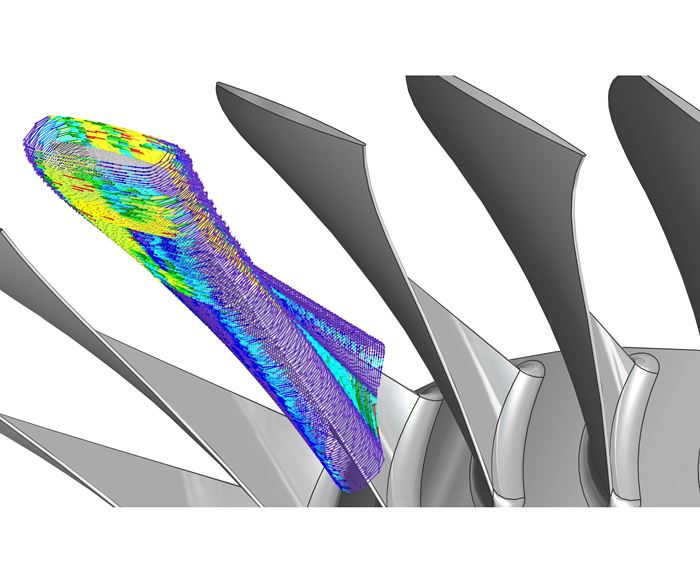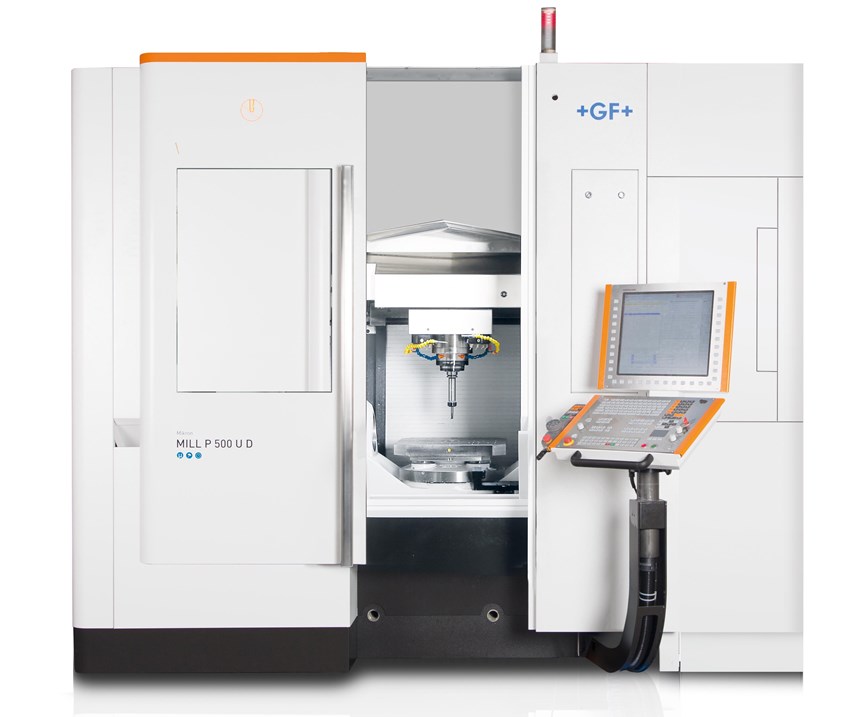Fraunhofer, Ericsson and GF Machining Join Forces
Fraunhofer, Ericsson and GF Machining Solutions have combined expertise in telecommunications and manufacturing to create a real-time process monitoring solution based on 5G technology to communicate with sensors and machines to reduce errors in jet engines milling production.
Fraunhofer Institute for Production Technology (IPT), Ericsson and GF Machining Solutions have joined forces on a collaboration to create a networked, adaptive manufacturing solution that was unveiled during the International Manufacturing Technology Show (IMTS) in Chicago. When milling parts at high speeds, excessive vibrations can occur, resulting in surface defects and rework. However, in industries requiring high process reliability and strict compliance control, there is no room for error.
Fraunhofer, Ericsson and GF Machining Solutions have combined expertise in telecommunications and manufacturing to create a real-time process monitoring solution based on 5G technology to communicate with sensors and machines to reduce errors in jet engines milling production. The ultra-low latency and reliability of Ericsson’s mobile communications enables increased predictability, real-time monitoring of sensor vibration data and better production control, thus allowing for adjustment of the cutting parameters. Where wired or unlicensed solutions cannot meet the needed speed demands for the application, 5G has proved to be the only communication standard that can deliver on the sensor and production data in under one millisecond.
The aim of this partnership is to further develop these wireless sensor connections for real time data analysis, ensuring adaptive control of production processes with extremely short reaction times. Therefore, the three partners chose a Mikron MILL P 500 U from GF that uses highly dynamic direct torque motors as well as a precise gantry with to 1.7 g acceleration and an accuracy of ±2 µm in the plane, which delivers the power and precision to enable such fast reactivity.
Because of high-value components and complex production with high safety regulations and standards, the aeronautics industry is a potential early adopter of 5G networks in production. Other sectors are sure to follow as industries switch to more data-driven and flexible manufacturing. Industry 4.0 will rely on increasingly fast, secure and often wireless, data transfers to optimize operations, increase automation and mitigate risk in manufacturing environments. All production and sensor data can be stored individually for each product, creating digital twins for quality design, accurate documentation and analytics. If defects arise, the data pinpoints to where the fault originated and the production can be optimized.
The selected communication standard determines the type of application, the quality of the data and whether or not machines, sensors, robots can be securely managed and interconnected through one network.
Related Content
-
Top 10 Topics to Cover During an ISO 9001 Manufacturing Audit
Take a look at this practical hands-on approach to conducting a quality audit.
-
Tackling a Mold Designer Shortage
Survey findings reveal a shortage of skilled mold designers and engineers in the moldmaking community, calling for intervention through educational programs and exploration of training alternatives while seeking input from those who have addressed the issue successfully.
-
Think Safety: Eliminate Hazards Throughout the Shop
The tooling community is taking advantage of new products for safer mold shops and molding facilities.

















